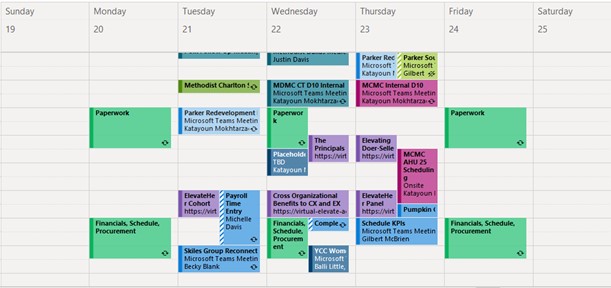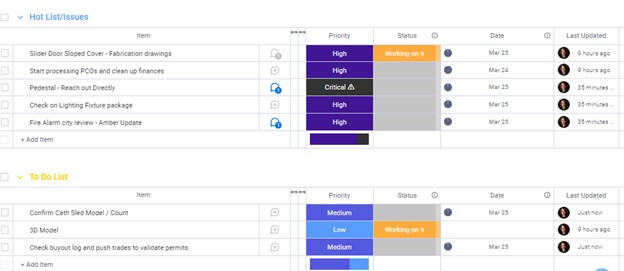Find out how Lean construction professionals across the industry cultivate time for deep work.
What is deep work?
Deep Work in Lean Construction
if you are reading this, I assume you’re familiar with the daily grind that is working in construction: back-to-back meetings, an endless influx of texts and emails, phones ringing—one crisis after the other, and the continuous firefighting that makes up our industry. And these interruptions come with the ever-present, nagging reminder of all the paperwork that still needs to be done.
Whether you share a trailer office with your team or work from an office full of cubicles, we are all immersed in an industry that never stops. Everyone develops their own work-arounds, curated to their lifestyles and priorities. Some start working earlier, trying to get a head start on the day to complete some work before the first email comes through; others toil into the evenings or over weekends, hoping to catch up on a pile of work that constantly grows. Either way, workload solutions that simply add more work hours to the day inevitably carves away at precious personal time and erodes our attempts at having a healthy work / life balance.
The project manager inside of me sees this challenge and wants to find true solutions that will maximize the hours devoted to work instead of asking for more—solutions that increase productivity and respect the importance of a good work / life balance. I tapped into my network, my peers in the field and in the office, to find out how they cultivate time for deep work, which is uninterrupted time with complete focus on a given task. Here is what they shared. (Keep in mind, there isn’t a one-size-fits-all solution that works for everyone; you may need to experiment and see what works best for you!)
-
-
Block out time.
-
Schedule time in your day for deep work; put it on your calendar to cement the fact that you are unavailable. Then, stick to it. Yes, sometimes a task or meeting will come up that is a higher priority or involves the client, and you just can’t say no. In that case, make it a habit to only shift a block once. Schedule your blocks for times you know are less likely to be intruded upon—but, at the same time, try to align with when you are naturally most productive. Pick what seems best for you, and don’t be disheartened if it isn’t working smoothly. Keep trying to find the time that best fits your schedule, and that may change as you move to new projects.
-
Make lists and prioritize.
It is almost impossible to plan out your day if you don’t understand the types of tasks you’ve got to tackle. It’s possible that many of them may be the same and doing them in batches could increase your productivity. Identical tasks—such as processing submittals, RFIs, daily reports, and scheduling—may benefit from the repetitive motion of being completed in the same time block.
-
Only check emails every few hours.
Researchers have determined that humans cannot multitask (despite whatever we may think!) When you go from one task to the next, it takes time for your full attention to transition as well. Therefore, if you are periodically stopping to check your email while you are working on another task, it’s highly likely that it will take you longer to do both. Believe it or not, you don’t need to actively check and respond to email; if it is urgent, I can assure you that your phone will blow up with calls and texts. Take time away from your inbox—close it down, so you aren’t even distracted by notifications—and focus on completing your block of activities. Remember that this is like exercising a muscle; while your inbox may be calling your name, fight the urge and concentrate on the task at hand.
-
Reduce the number of meetings you are in.
Say no to meetings where you know your presence is not beneficial. If you aren’t giving or receiving information, you probably don’t need to be present. Cancel meetings that could be handled with an email.
If they can’t be cancelled, ask your teammates to share high-level take-aways or highlights of the meeting with you after it’s over. And if you’re the one who is scheduling the meeting, always have an agenda—and, if possible, send it out in advance so everyone can be prepared. Have an E.L.M.O. handy if someone goes on a tangent, and remember it’s ok to request an item to be put in the “virtual parking lot” to allow those who are not involved or affected to jump off the call or get back to their work. If you save time in their day, they will likely return the favor.
There are many benefits to deep work, including added productivity, increased output, and better flow. For those of you who are just starting out in this industry, deep work also helps to increase your knowledge retention, and grow with intent. But establishing new habits takes time. Whatever it is that you’re attempting to incorporate into your work routine: you’ll get there, just not right away. Approach these ideas with a flexible attitude and customize them to make it work for you.












